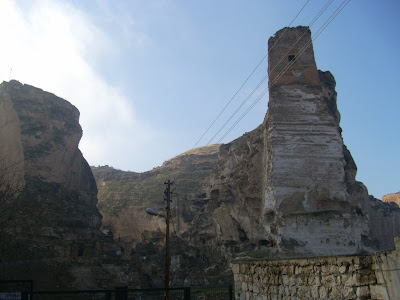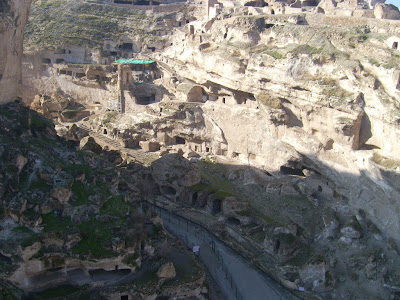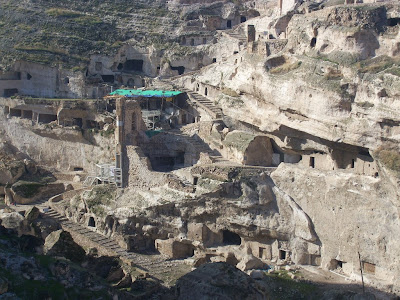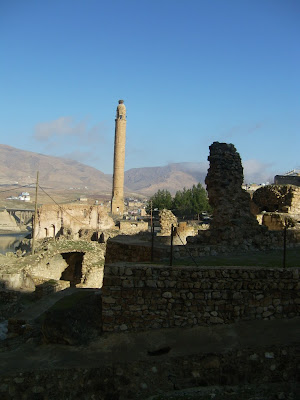










































In Turkish there is a proverb, 'bir lisan bir insan, iki lisan iki insan' which literally means, 'one language one person, two languages two people'. The saying refers to the phenomenon that occurs when a person learns to speak a new tongue and can essentially become a new person. If you've ever lived in another country you can see this phenomenon in action when you reach a certain point of success with the local language. You will befriend the humble older man who runs the general store on the corner and he will speak slowly to you his blessings for the day as per said in the culture. The young man who runs the liquor store will nudge you everyday and ask you the same questions about parties and girls. You will 'accidentally' be in the elevator at the same time as your hot neighbor and she'll make small talk with you about your day. This is when you are in your infant/honey moon phase of learning a new language in a new culture but as time passes the rewards will multiply tenfold.
A few weeks ago I visited an ancient city in the far southeast of Turkey which is called Hasankeyf. To say that Hasankeyf is old is actually somewhat of an understatement where it is said to be one of the oldest cities in the world. It rests on the banks of the Tigris River in a place where you can literally see the gap between late ice-age cave dwellings and the roots of the Agricultural Revolution. Hasankeyf isn't the first city people visit when they come to Turkey and in fact it is a city that most Turks haven't even been to. You cannot fly directly there and the only way to find it requires you to go through two huge Kurdish cities where Turkish is actually the third most frequently spoken language and having said that you probably wont find more than a paragraph about it in any guide book. Getting into this city not only required me a great deal of planning yet a sense of confidence in my Turkish languages skills whereas I really didn't know what I was going to do when i got there.
Hasankeyf was built and rebuilt upon many times by many different civilizations including the ancient Sumerians, far branches of the Hittites and much later the Ottoman Turks. The city also recently gave refuge to a large number of Syrians who escaped a pending dangerous political situation in the north of Syria. It boasts some of the best man made landscapes in Turkey. There are remains of a large fortress high up in the mountains and three enormous stone supports for an ancient bridge which once crossed the Tigris River. Whereas some people come to Hasankeyf as visitors, very few people come in the dead of winter as I did.
The first people I met in Hasankeyf were old men on the crowded minibuses who welcomed me to their city with thumbs up through dirty farming gloves. By no means could I be mistaken for a local however an interesting thing happens when they find out that I live in Istanbul and speak Turkish, it becomes known that I am a part of their country. Although I have a strange accent which is a mix of American mispronunciation and urban Istanbul dialect, my speaking is completely understandable and after some getting-used-to I learned to understand the heavy accents of the East.
The following people who I met were children about a half hour after arriving into the city. I passed them twice on my way to the dilapidated fortress. In first passing I was hesitant and tried to gaze upon the outsides of the ruins as if I didn't notice them staring but the second time I came to the fortress one of them came to me. Taner, his name I'd later learn, was no older than eleven. He first spoke to me in a very broken English asking where I was from. "I'm from Istanbul" I told him in Turkish, "but not originally". There was this comical sense of relief in Taner that I saw when he realized that we were on the same wavelength for communication. He told me the area was "yasak" which is Turkish for "forbidden". It was an protected place that is dangerous to walk due to the deteriorating structure. Five lira is very convincing and a small, yet respectable, price to pay for the help of a local child who makes others turn a blind eye as he sneaks you into the coolest fortress you have ever seen.
Taner told me of each room in the fortress. He told me how it was built before Islam came to Turkey and after the original Turks converted, the rooms once used as temples to Sumerian gods had been transformed into the foundations for mosques. He showed me tiny secret entrances into cave houses where a full-grown 29 year old man would have slight trouble squeezing through. We went on a short tour around the banks of the Tigris near the foot of the cave dwellings which, in my mind, was the spot where farming started upon the fertile crescent. Taner could keep that five lira, the ice cream I gave him as a tip was on me.
In respect for keeping an article short I'll end with an emotion I wish to share with the world. I cannot express in words what it feels like to visit other places and actually speak the language of the people. It is a reward for a long time of dedication and submission to a very frustrating process. When you learn a language you become a new person and whereas the original you may be living a life at home the new language and new person you become can set out to explore distant faraway and beautiful worlds.
























2 comments:
hi Chris,
shared some beautiful pictures, I hope that was a nice trip, such as photographs
Wow! amazing and excellent pictures.
Post a Comment